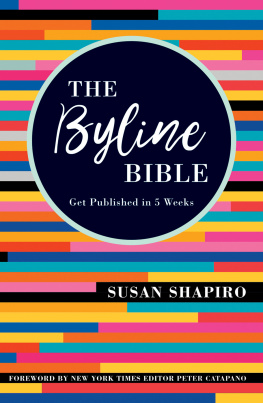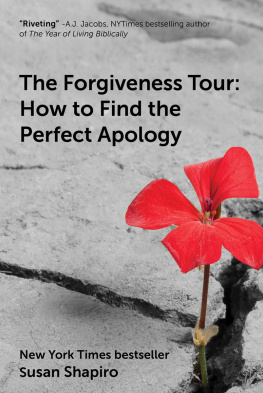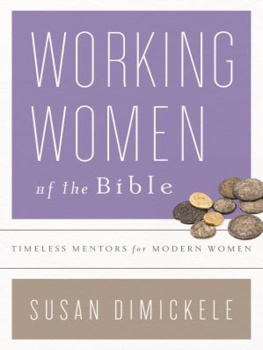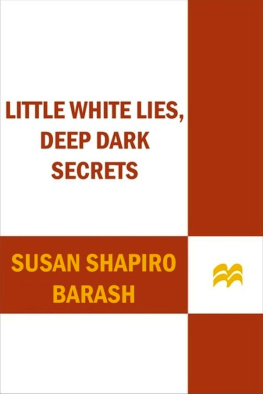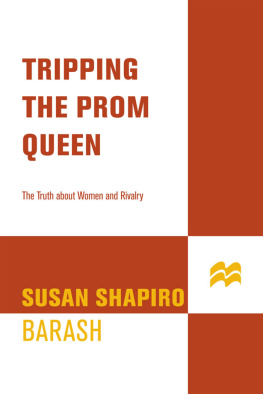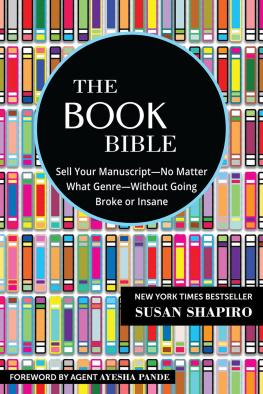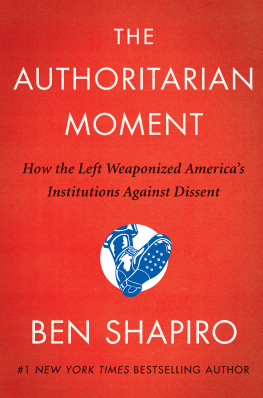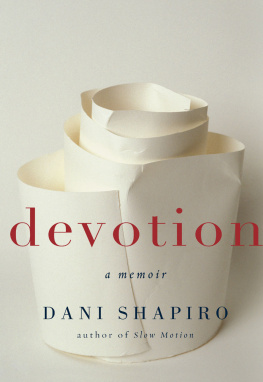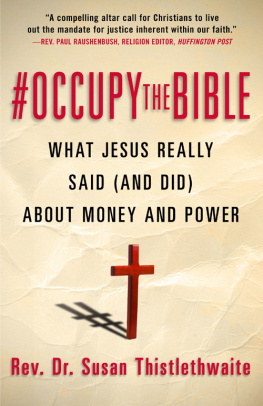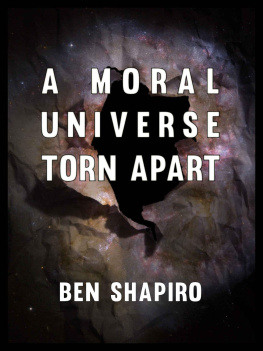Susan Shapiro - The Byline Bible
Here you can read online Susan Shapiro - The Byline Bible full text of the book (entire story) in english for free. Download pdf and epub, get meaning, cover and reviews about this ebook. City: S.I., year: 2018, publisher: Penguin Publishing Group, genre: Home and family. Description of the work, (preface) as well as reviews are available. Best literature library LitArk.com created for fans of good reading and offers a wide selection of genres:
Romance novel
Science fiction
Adventure
Detective
Science
History
Home and family
Prose
Art
Politics
Computer
Non-fiction
Religion
Business
Children
Humor
Choose a favorite category and find really read worthwhile books. Enjoy immersion in the world of imagination, feel the emotions of the characters or learn something new for yourself, make an fascinating discovery.
- Book:The Byline Bible
- Author:
- Publisher:Penguin Publishing Group
- Genre:
- Year:2018
- City:S.I.
- Rating:4 / 5
- Favourites:Add to favourites
- Your mark:
- 80
- 1
- 2
- 3
- 4
- 5
The Byline Bible: summary, description and annotation
We offer to read an annotation, description, summary or preface (depends on what the author of the book "The Byline Bible" wrote himself). If you haven't found the necessary information about the book — write in the comments, we will try to find it.
The Byline Bible — read online for free the complete book (whole text) full work
Below is the text of the book, divided by pages. System saving the place of the last page read, allows you to conveniently read the book "The Byline Bible" online for free, without having to search again every time where you left off. Put a bookmark, and you can go to the page where you finished reading at any time.
Font size:
Interval:
Bookmark:

FOREWORD BY NEW YORK TIMES EDITOR PETER CATAPANO

To my Fantastic Five: Jack, Mickey, Brian, Eric, and Mike, with eternal love and gratitude
PETER CATAPANO
One of the fun things I get to do in my job as a New York Times editor is visit Sue Shapiros writing classes at The New School and disagree with her. This is bad manners on my part, since Sue has always been very nice to me (and my books) and frequently invites me to speak to her students, which is flattering, probably good for my rsum, and is something I actually, really, truly like to do. It can also turn out to be embarrassing because Sue is usually right.
For example, Sue will tell one of her students trying to sell a short personal essay or op-ed piece, Make it timely! (There are often exclamation points at the end of things Sue says, I just know it.) I will add something dangerously misleading like, Weve got timely up to here. Why not make it weird, obscure, and also timeless? I do this at least once per visit, partly because I truly am fond of odd and offbeat writing, but also because it reinforces my long-cherished notion of myself as a rebel who has no use for practical advice, either giving it or taking it. A week or so later, I will find myself rejecting an odd and offbeat piece and accepting another one because it is more timely. And so it goes.
I do this a few times a year in my capacity as a member of the Opinion section of The New York Times, where I develop and edit online series, usually weekly installments of first-person essays or commentary on a range of topics such as mental health, psychology, philosophy, music, religion, war, and peace. These venues are not restricted to experts in their chosen field; they are platforms for people from all walks of life and levels of experience. We welcome new writers, not just experts, as long as they can write well and make compelling arguments or tell great stories that will appeal to our readers.
Many of Sues students, coached by her on the ins and outs of narrative technique, to-the-point pitching, and common sense publishing etiquette, have found their way into The New York Times as well as other newspapers, websites, and magazines. These clips have led to more than one hundred books. So she and her recruits are doing something right.
Sue has told me that one of the reasons she invites me back every term is that Im optimisticsomething no one who has had to live with me would agree with. What I think she means by this is that I firmly believe these are good times for writers, and that, with new publications and websites sprouting up every day, and new readers with new interests and appetites wanting to read them, the landscape for writers looking to publish their work is far more promising than it has ever been. The days when one had to print out his work with a cover letter, put it in an envelope, lick the stamp and affix it, then send it off in a mailbox like a message in a bottle only to wait weeks, sometimes months, for a replyusually a polite noare over. These are boom times (for words, if not pay). Today, I can honestly encourage a classroom full of aspiring writers.
Sues classesand by extension this bookare like a journalistic and literary boot camp. They provide a set of rigorous practical steps that few new writers would ever dream up themselves. You must write and write fastdont be fussy about it, because Sue doesnt tolerate dawdling. Develop strategic plans to identify and pitch editors just as quickly. Do your homework. Figure out who edits what. Take names. Didnt get the nod on your first piece? Brush yourself off and do it again. Ding! Then again. Write some more while you are at it. And move that middle part to the topthats the hook right there, and you buried it. Brush it up, check your spelling, your flow. Be sure the pitch is short and to the point. And never send it on a Friday. Need to follow up? Be polite but persistent. All the things I never learned but should have when I was starting out as a writer. (It is the rare editor who didnt start out wanting to be a writer.)
In class, I field questions from new recruits, rapid-fire, about thirty in an hour, on the practical aspects of writing and publishing. These Q&As are a little like speed dating, without the prospect of a date. Part of what I try to offer new writers is a sense that editorsparticularly editors at higher profile places like The New York Timesare humans, rather than rigidly judgmental authority figures stamped out of a culture machine. Each one of us has our own tastes and inclinations, with passions, pet peeves, and sometimes odd obsessions. Most have hectic schedules, exploding e-mail inboxes, and lots of actual editing to do. But for the most part, we are happy to discover new writers, and wed much rather say yes than no.
Another thing I never fail to mention: A writer who can produce good, skillful copy on time and conduct all the business of pitching, writing, and revising in a calm, professional manner is an editors dream. That is the sort of writer this book is meant to produce.
I am also sometimes asked about how I got to do the job I now have. (I sometimes forget that it is a rare and wonderful one, and that question reminds me.) In the interest of the whole editors are really just people theme, I cough up a few details: Growing up in a Catholic working-class Staten Island family, I cared more for baseball than books and set my sights on the typical career choices of clueless boysrace car driver, big league pitcher, or if none of those worked out, a firefighter, like my dad. But a transformative head-on collision with Kurt Vonnegut in Mrs. Jocelyns sophomore English class, and a realization that I couldnt break the town speed limit with my fastball, set me on another path. I had fallen in love with literature (as well as the cute, book-loving girl who sat in the next row). I was going to write.
I could have used a book like this in 1986 when I moved back to New York after graduating college. I arrived with a degree in history from Cornell University (thanks to financial aid, student loans, and my dad, who took on a second job) and a plan. It involved writing, yes, but it was devoid of the practical steps regarding what I might do when the writing was done. I figured my brilliance and undeniable talent would simply manifest itself, at which point an agent, an editor, and a publisher would materialize unbidden to nurture my genius. I would be discovered.
Much to the dismay of my parents, who were still paying off my student loans, I avoided steady work so I could write short stories, poems, and eventually, The Novel. I enrolled in an M.F.A. program and scraped by as a waiter, a bartender, a tutor, a drummer in a few rock bands, a middle school science teacher, and a part-time copy boy at The New York Times, where I delivered piles of breaking news updates, on actual paper, that came chattering off the wires, and where I began the slow process of learning about the business.
I wrote a handful of music reviews and profilesof a jazz club owner, a bus driver, and a musician working in an Indian restaurant on Sixth Streetbut I didnt have much guidance on how to be a working writer. Eventually, I lost my focus, and more important, my discipline, and gave up on the idea that I could figure out how to make a living from my first love.
Font size:
Interval:
Bookmark:
Similar books «The Byline Bible»
Look at similar books to The Byline Bible. We have selected literature similar in name and meaning in the hope of providing readers with more options to find new, interesting, not yet read works.
Discussion, reviews of the book The Byline Bible and just readers' own opinions. Leave your comments, write what you think about the work, its meaning or the main characters. Specify what exactly you liked and what you didn't like, and why you think so.

